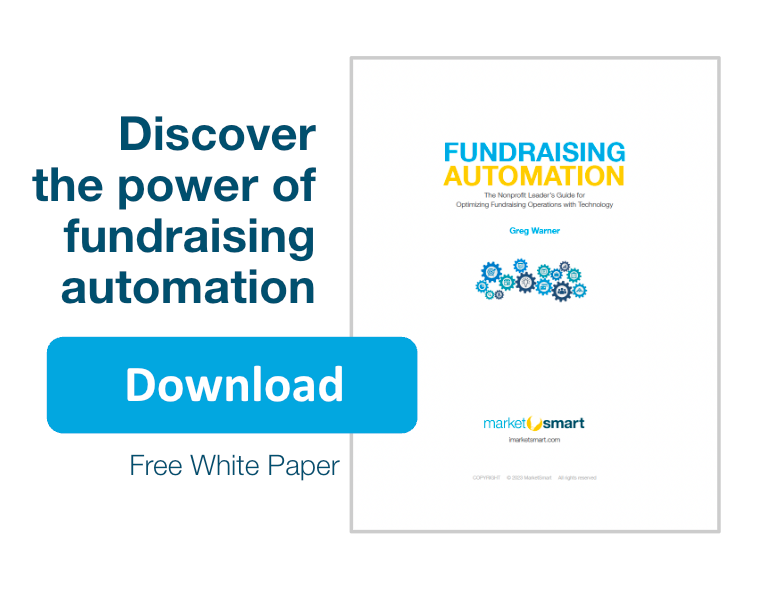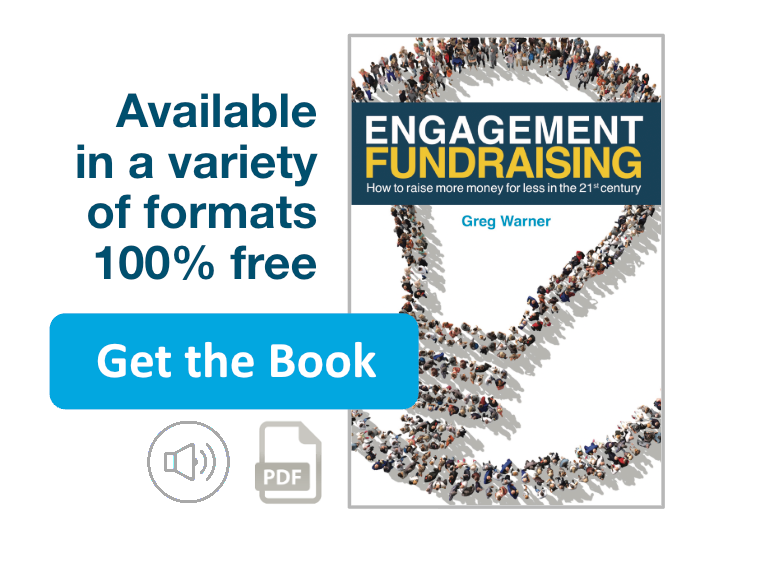Newly Wealthy Donors Aren’t Anything Like Donors Who Come from Families with Generational Wealth
They have different world views, different perspectives about money, work, and philanthropy, and different worries. In fact, newly wealthy families share one great worry, almost unanimously, and they will listen to anyone who can help them address it.
Solving that problem should be part of the bread and butter of being a major gift officer.
But, one of the biggest mistakes made by many major gift officers and nonprofit organizations is that they view all wealthy people the same way. Frequently, they view them as wanting recognition and status based on their wealth. And many believe that most wealthy people love to buy themselves lavish and luxurious gifts and unnecessary large expenses.
Some gift officers believe most wealthy people inherited all or most of their wealth, and this colors how they relate to them.
But the truth, as revealed most recently in a study from Leadership Story Lab, is that the vast majority of wealthy families earned all or most of their wealth on their own. They started off just like the rest of us, but through hard work, skill, perhaps a bit of luck and timing, ingenuity, persistence, and intelligence, they built a career or launched a business that made them a fortune.
And that experience has left them with one overarching worry.
This concern, this anxiety, isn’t felt as much by families with legacies of wealth over generations. It is unique to first generation wealthy families.
The good news is that if you as a gift officer can identify the newly wealthy donors in your database who also have families, you can provide a very powerful solution that addresses this worry.
And in so doing, you will present a much more attractive offer, because newly wealthy donors don’t give money away for the status or the recognition. They give because they want to influence the world, make a difference, use their abilities and wealth to build new things and effect change.
What’s the big worry of the newly wealthy?
The Greatest Worry of Newly Wealthy Donors with Families
Their greatest concern is that they will fail to pass on a legacy of hard work and diligence to their children.
As first generation wealthy people, they didn’t grow up rich. They know how it feels to be in want, to have to work hard to live and build things. They know what it’s like to take risks, and to take them knowing that failure could be very costly.
But their kids are growing up in a much more comfortable environment. And these wealthy parents desperately want their kids to avoid the trappings of growing up too comfortable. But it’s not easy to do.
You as a gift officer for a charitable organization can provide them one way, and we’ll get to how a bit later.
But first, let’s consider how much of this worry is justified.
Do Newly Wealthy Families Have Cause to Worry about Their Kids?
In short – yes.
The study points out that children of affluent families have higher rates of depression, alcohol abuse, and drug use. The reasons for this are many, but the point for now is – newly wealthy parents don’t want their kids to end up like so many other children of wealthy parents do.
This fear leads about two thirds of such parents to resist sharing explicit details about their finances with their kids. They don’t want them knowing how much money they have, because they worry it will act as a de-motivator, reducing their urge or desire to work. They want their kids to be willing to endure the hardships and struggles that come with work.
As one wealthy parent in the study put it, “Everything could fall apart tomorrow. If I’m ever left with a backpack and a pair of tennis shoes, I could get along. I don’t know if my kids know that about themselves.”
Do you see the uncertainty there? The worry? The parents are pretty confident in themselves. But how would their kids respond to adversity?
Interestingly, first generation wealthy parents tend not to be as worried about another surprising fact, that wealth very rarely lasts for more than three generations. Only 10% of wealthy families are still wealthy after the third generation. In most cases, it dissipates by then for a variety of reasons.
However, newly wealthy families tend not to be as worried about that. Given a choice, they would rather see their kids learn how to work hard and build quality lives and not be rich, than see them be rich but unable to sustain themselves or hold down a job.
How Gift Officers Can Connect with Newly Wealthy Parents Over This Worry
Major gift officers have a unique and powerful opportunity to forge lifelong partnerships between newly wealthy families and the nonprofit organizations they represent.
Knowing about the chief worry of newly wealthy parents gives you a huge advantage. It’s up to you to leverage it so everyone wins.
Here are the four steps you can take that will address this primary concern of newly wealthy donors, and thus bond them to your organization for many years.
1. Find the Newly Wealthy Parents
First, you have to find them. You have a big donor database, with names and contact information that has come from a plethora of sources over decades. Which ones are wealthy? Which of those are first generation wealthy? How do you find them?
MarketSmart’s software was built exactly for this purpose – to help your best potential donors self-identify, so you don’t have to pay wealth screeners tons of money and still fail to identify the newly wealthy donors on your list. And they will fail more often than not.
Our process works so well that we offer a 10:1 ROI Guarantee to all our customers. You will generate at least ten times as much money as you will spend when you use our system.
This is one of the reasons – because our system enables your gift officers to stop wasting time scouring spreadsheets and databases, and instead get out there and talk to your most highly qualified and cultivated donors.
Schedule a free demo of our software to see how it works.
2. Show Understanding About Their Worries
Once identified, qualified, and cultivated, your gift officer can then go into the first meeting with a newly wealthy potential donor.
If that donor has kids, you can be quite safe in assuming they share the worry that is common to first generation wealthy families. And by the way, our software works such that you will know it. You won’t have to assume it.
Either way, knowing how concerned they feel about their children’s future related to work ethic and wealth gives you a profound opportunity to empathize. You can relate to their worries. Express understanding. Show that you see the value of hard work and that their anxiety is justified.
3. Be Different – Make a Good Impression
In the study, one fascinating detail was that when the wealthy subjects were asked what a ‘fundraiser’ was, they all thought it was an event, not a person.
Think about that for a moment. What a disconnect between what you do and what comes to their minds at that word!
Why do they think that?
Because they’ve never had a conversation with someone who can talk with them about wealth from their perspective. Someone who understands what they’re facing, and who can express why this is particularly hard for a family that didn’t grow up wealthy.
You can talk about lost friendships and family relationships. Business sales. Philanthropic opportunities. Why flashy, glitzy events are turn-offs. How it’s lonely being newly wealthy, because they don’t relate well to families with generational wealth.
You can talk this way because you understand the 4 core values of newly wealthy families.
Do this, and you will make a very good impression. You will be different. You will be trustworthy.
This isn’t just about winning a major gift. This is about winning a new relationship. Especially with first-generation wealthy parents.
4. Offer Opportunities for Children of Wealth to Get Involved
Once you’ve begun to win their trust, you can offer opportunities for ways their children can get involved with your organization.
The details will be different with each nonprofit, but this could include volunteer opportunities, board positions, campaigns or initiatives they can work on, or working on-site somewhere.
There are many ways someone can get involved other than just giving. And for first generation wealthy parents, they will jump at the chance to get their children doing something that will help build up their work ethic, give them a chance to fail and to succeed, and get them out in the real world – where the parents grew up.
The great thing is, for most organizations, you can find ways to offer opportunities like this for many ages of children. There are things to do at most organizations for young children ranging from age 10 up to adult children at age 50.
Identify the newly wealthy donor. Connect with them. Understand their situation. Talk about their concerns related to their kids. And find a solution.
Do all that, and you will win a generous financial partner.
What Happens if You Fail to Connect with Newly Wealthy Donors
Who is your competition? Where will newly wealthy donors take their charitable dollars if you fail to forge an authentic relationship with them?
Very often, they use their entrepreneurial spirit to start up something on their own. Often, this is a private foundation. Sometimes it’s an actual nonprofit.
Private foundations are one of the biggest competitors to major gift fundraising, often more so than other nonprofits.
According to the Leadership Story Lab study, 20% of wealthy families fund their own foundations or charitable organizations. More alarming, 26% more such families hope to do so in the future.
If there’s $3 trillion getting ready to pass from wealthy families to charitable organizations in the next ten years, as the study reports, let’s do some quick math.
20% of $3 trillion is $600 billion. That much may already be out of reach.
But 26% of $3 trillion is $780 billion. That’s how much hangs in the balance, in addition to all the remaining dollars that will be passed down.
How much of that $780 million can you keep out of family foundations by forging a relationship with newly wealthy families that is so strong, that it dissipates their thoughts of hassling with starting their own organization?
Find the Newly Wealthy Donors in Your Database
This all begins by finding the newly wealthy donors in your databases and contact lists. If you don’t figure out how to separate newly wealthy donors from ones who grew up with wealth, your gift officers won’t be able to go into meetings already knowing the prospect shares this major anxiety about their children.
Knowing the value of their assets isn’t enough. You need to know where this person’s wealth came from before the meeting ever takes place.
MarketSmart’s software was built for this exact purpose, to identify, qualify, and cultivate the wealthy donors from within your donor lists and databases.
And as mentioned before, our system does this so well that we give a 10:1 ROI Guarantee to all our customers. Schedule a free demo today to see how it works.
Related Resources
- Top 10 Tips for Landing More Meetings Report
- 7 big reasons why capacity is so hard to uncover (how the rich hide their wealth)
- The 4 Core Values of First-Generation Wealthy Donors You Need to Understand
- Why your wealthy donors love donor advised funds and why you should care






Money talks. Wealth whispers. Think about that. And the best book on working with wealthy donors wanting to use philanthropy to pass family values to children is Wealth in Families, written by the late Charlie Collier from Harvard. Charlie was a legend. I’ve given out over a thousand of his books to donors and gotten rave reviews.